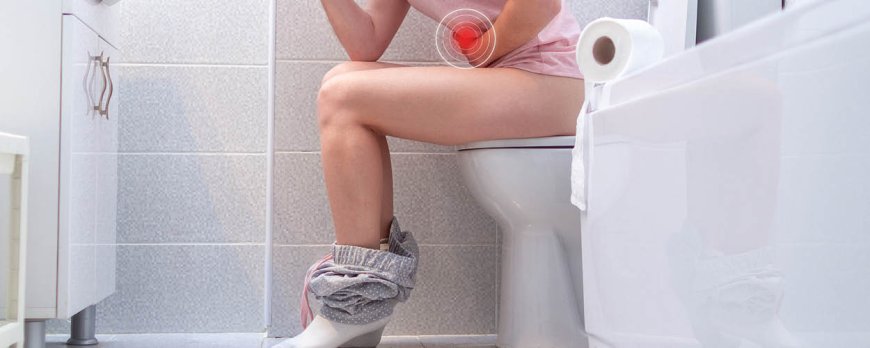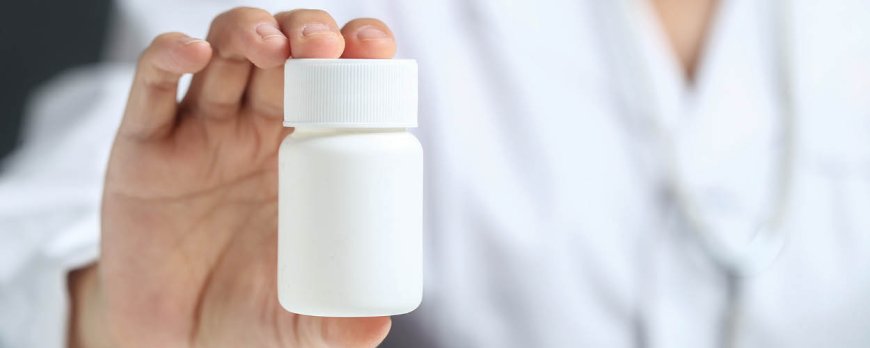Do probiotics help with gas and bloating?
Discover how probiotics may alleviate digestive issues. 'Do probiotics help with gas and bloating?' we explore in-depth. Improve your gut health today.

Do probiotics help with gas and bloating?
Gas and bloating can be uncomfortable and bothersome, but could probiotics provide a solution? Probiotics, which are live beneficial bacteria and yeasts, have emerged as a potential remedy for gas and bloating. They work by maintaining a healthy balance of bacteria in the body, thus alleviating symptoms associated with gas buildup. It is important to note, however, that research on probiotics is still in its early stages. Therefore, consulting a doctor before starting probiotic supplements is advisable. Other treatment options for gas and bloating include dietary changes, exercise, and lifestyle modifications.
Key Takeaways
- Probiotics are live beneficial bacteria and yeasts that may help relieve gas and bloating.
- Gas buildup leading to bloating can be caused by swallowing air while eating and certain carbohydrates that are fermented in the large intestine.
- Research on probiotics and their effectiveness in alleviating gas and bloating is ongoing.
- Consulting a healthcare professional before starting probiotic supplements is recommended.
- Dietary changes, exercise, and lifestyle modifications can also help manage gas and bloating.
Understanding Gas and Bloating
Before exploring the potential benefits of probiotics, it's important to understand the causes of gas and bloating. Gas buildup leading to bloating can be caused by swallowing air while eating and certain carbohydrates that are fermented by bacteria in the large intestine.
Here are some common causes of gas and bloating:
- Swallowing air while eating or drinking
- Consuming gas-producing foods like beans, lentils, broccoli, cabbage, and carbonated drinks
- Intolerance to certain carbohydrates, such as lactose or gluten
- Overeating or eating too quickly
- Stress and anxiety
To alleviate gas and bloating, you may consider trying these natural remedies:
- Eating smaller, more frequent meals
- Avoiding gas-producing foods
- Chewing food thoroughly and eating slowly
- Drinking peppermint tea or chamomile tea
- Taking over-the-counter gas-relieving medications, if needed
Remember, it's important to consult with a healthcare professional if you're experiencing persistent or severe gas and bloating. They can help you identify the underlying cause and recommend appropriate treatment options.
The Role of Probiotics
Probiotics are live beneficial bacteria and yeasts that play a crucial role in promoting digestive health. These microorganisms, when consumed in adequate amounts, can help maintain a healthy balance of bacteria in the body. A balanced gut microbiome is essential for optimal digestion and overall well-being.
When it comes to managing digestive issues such as gas and bloating, probiotics have shown promising potential. Gas buildup in the gastrointestinal tract leading to bloating can be caused by swallowing air while eating and the fermentation of certain carbohydrates in the large intestine. Probiotics help regulate digestion and may alleviate symptoms associated with gas and bloating.
While the benefits of probiotics for digestive health are becoming more recognized, it is important to note that research in this area is still evolving. It is advisable to consult a healthcare professional before starting probiotic supplements, as they can provide personalized advice based on your specific needs. Additionally, incorporating probiotics into your routine should be part of a holistic approach that includes dietary changes, exercise, and lifestyle modifications.
In summary, probiotics have emerged as a potential solution for managing digestive issues such as gas and bloating. These live beneficial bacteria and yeasts help maintain a healthy balance of bacteria in the body, which is crucial for optimal digestion. However, it is important to consult a healthcare professional before starting probiotics and to adopt a holistic approach that includes other treatment options for gas and bloating.

The Link Between Probiotics and Gas/Bloating
Research suggests that probiotics may address the root causes of gas and bloating by promoting a healthier gut environment. These live beneficial bacteria and yeasts help restore the natural balance of microorganisms in the digestive system, which can be disrupted by factors such as poor diet, stress, or certain medications.
Probiotics work by replenishing the gut with friendly bacteria that support optimal digestion and nutrient absorption. By doing so, they help reduce gas buildup and regulate bowel movements, leading to relief from bloating and discomfort. Additionally, some probiotic strains have been found to have anti-inflammatory properties, which can further contribute to alleviating digestive symptoms.
While more research is needed to fully understand the specific mechanisms through which probiotics provide relief, studies have shown promising results. Certain strains, such as Bifidobacterium lactis and Lactobacillus acidophilus, have demonstrated effectiveness in reducing gas production and bloating in individuals with digestive issues.
Probiotics for Bloating Relief: Tips for Choosing the Right Strains
- Look for multi-strain probiotic supplements that contain a variety of beneficial bacteria.
- Check the colony-forming units (CFU) count, as higher numbers generally indicate a more potent product.
- Consider strain specificity, as different strains may have varying effects on gas and bloating.
- Choose quality products from reputable brands that ensure the viability of the probiotics.
While probiotics have shown potential in reducing gas and bloating, it is important to consult with a healthcare professional before starting any supplementation. They can provide personalized advice and guidance, taking into account your specific health condition and any potential interactions with medications that you may be taking.
In addition to incorporating probiotics into your routine, it is also beneficial to explore other approaches for managing gas and bloating. This includes making dietary changes such as avoiding trigger foods, practicing stress management techniques, and engaging in regular physical activity. By adopting a holistic approach, you can optimize your digestive health and reduce the frequency and severity of gas and bloating symptoms.

Research on Probiotics and Gas/Bloating
Numerous studies have investigated the potential of probiotics in relieving gas and bloating, shedding light on their effectiveness. Research suggests that certain strains of probiotics may help regulate digestion and alleviate symptoms associated with gas and bloating.
A study published in the Journal of Clinical Gastroenterology found that a strain of probiotics called Bifidobacterium infantis significantly reduced bloating in participants with irritable bowel syndrome (IBS). Another study, published in the World Journal of Gastroenterology, found that the combination of Lactobacillus acidophilus and Bifidobacterium lactis reduced bloating and improved overall digestive symptoms in individuals with functional gastrointestinal disorders.
Additionally, a review of 14 clinical trials published in the journal Nutrients concluded that probiotics, particularly strains from the Lactobacillus and Bifidobacterium genera, showed promise in reducing symptoms of bloating.
Key Findings:
- Probiotics have potential in alleviating symptoms of gas and bloating.
- Strains such as Bifidobacterium infantis, Lactobacillus acidophilus, and Bifidobacterium lactis have shown promising results.
- Further research is needed to determine the optimal strains, dosages, and duration of probiotic supplementation for gas and bloating relief.
While the findings are promising, it is important to note that individual responses to probiotics may vary. It is advisable to consult a healthcare professional before starting probiotic supplements, as they can provide personalized advice based on individual needs and potential interactions with other medications. As part of a holistic approach to digestive health, incorporating probiotics into a well-balanced diet and adopting healthy lifestyle habits may help manage gas and bloating symptoms.

Choosing the Right Probiotics
With a wide range of probiotic products available, it's important to choose the right ones to effectively target gas and bloating. Here are some factors to consider when selecting probiotics:
- Strain specificity: Look for probiotics that contain strains known to be beneficial for gut health, such as Lactobacillus and Bifidobacterium.
- CFU count: CFU stands for colony-forming units, which indicate the number of viable bacteria in each dose. Higher CFU counts are generally recommended for better efficacy.
- Product quality: Ensure that the probiotic product has been tested for purity, potency, and safety. Look for reputable brands that follow good manufacturing practices.
It's also important to note that not all probiotics work the same for everyone. What may work for one person may not work for another. It may require some trial and error to find the right probiotic for your specific needs.
If you're unsure about which probiotic to choose, it's best to consult with a healthcare professional who can provide personalized advice based on your individual health needs and medical history. They can help you navigate through the various options and recommend the best probiotic for your gas and bloating symptoms.
Incorporating Probiotics into Your Routine
Discover simple strategies to include probiotics in your daily regimen and potentially alleviate gas and bloating symptoms. Probiotics, such as live beneficial bacteria and yeasts, can help restore a healthy balance of bacteria in your body, promoting digestive health.
1. Dietary Sources of Probiotics
One of the easiest ways to incorporate probiotics into your routine is by consuming foods that are naturally rich in these beneficial bacteria. Consider including fermented foods like yogurt, kefir, sauerkraut, kimchi, and kombucha in your diet. These foods contain live cultures that can help support a healthy gut microbiome. Aim to include a variety of probiotic-rich foods in your meals to maximize the potential benefits.
2. Probiotic Supplements
If incorporating enough probiotics through your diet is challenging, you may consider taking probiotic supplements. These supplements are available in various forms such as capsules, tablets, and powders. When choosing a probiotic supplement, look for one that contains specific strains known to support digestive health, such as Lactobacillus and Bifidobacterium. It is recommended to consult with a healthcare professional to determine the right probiotic supplement and dosage for your specific needs.
3. Timing and Storage
To maximize the effectiveness of probiotics, it's important to take them at the right time and store them properly. Follow the instructions provided on the supplement packaging, as different probiotics may have different recommendations. Some probiotics are best taken with meals, while others may be more effective when taken on an empty stomach. Additionally, ensure that you store your probiotics in a cool, dry place, away from direct sunlight, as heat and moisture can compromise their potency.
Remember, incorporating probiotics into your routine is just one piece of the puzzle when it comes to managing gas and bloating. It's important to adopt a holistic approach by making dietary changes, exercising regularly, and managing stress levels. If you experience persistent or severe symptoms, it is always advisable to consult a healthcare professional for personalized advice and guidance.

Consult Your Doctor
While probiotics show promise in addressing gas and bloating, it's essential to consult a healthcare professional for personalized guidance. Probiotics are live beneficial bacteria and yeasts that help maintain a healthy balance of bacteria in the body. They may alleviate symptoms of gas and bloating, but it's important to note that the research on probiotics is still in its early stages.
Before starting probiotic supplements, it's crucial to consult with a doctor who can provide personalized advice based on your specific health needs. They can help determine the most suitable probiotic strains, dosage, and duration of use for managing digestive issues. Additionally, healthcare professionals can consider potential interactions with other medications and ensure that probiotics are a safe and appropriate option for you.
In addition to probiotics, there are other treatment options that can also help manage gas and bloating symptoms. Dietary changes, such as avoiding gas-producing foods and increasing fiber intake, can make a significant difference. Engaging in regular exercise and practicing stress management techniques can further support digestive health. Your doctor can provide comprehensive guidance on incorporating these lifestyle modifications along with probiotics for optimal digestive well-being.
Additional Approaches for Gas and Bloating
In addition to probiotics, there are various other strategies that can be incorporated to reduce gas and bloating discomfort. These natural remedies and lifestyle modifications can help improve overall digestion and alleviate symptoms:
- Be Mindful of Your Diet: Certain foods can contribute to gas and bloating. It may be helpful to reduce your intake of gas-producing foods such as beans, lentils, cruciferous vegetables (broccoli, cabbage, cauliflower), carbonated drinks, and artificial sweeteners. Instead, incorporate more easily digestible foods like lean protein, whole grains, and cooked vegetables into your diet.
- Stay Hydrated: Drinking an adequate amount of water throughout the day can help prevent constipation and promote regular bowel movements. Aim to drink at least 8-10 glasses of water daily.
- Exercise Regularly: Physical activity can help stimulate digestion and reduce bloating. Engaging in moderate-intensity exercise, such as brisk walking or cycling, for at least 30 minutes a day can have a positive impact on your digestive system.
Managing Stress:
Stress can contribute to digestive issues and exacerbate gas and bloating symptoms. Incorporating stress management techniques, such as deep breathing exercises, meditation, and yoga, into your daily routine can help relax the body and promote better digestion. Prioritizing self-care and finding healthy outlets to manage stress can go a long way in improving overall gut health.
It's important to note that everyone's body is unique, and what works for one person may not work for another. It may be helpful to keep a food diary to pinpoint any specific triggers that may be causing gas and bloating. If symptoms persist or worsen, it is always recommended to consult with a healthcare professional for a thorough evaluation and tailored treatment plan.
The Future of Probiotics Research
As scientific understanding of probiotics continues to evolve, future research may unlock even greater benefits for digestive health. Ongoing studies are exploring new strains of probiotics and their potential effectiveness in addressing specific health concerns, including gas and bloating. Researchers are also investigating innovative technologies to enhance the delivery and potency of probiotic supplements.
One area of interest is strain specificity. Scientists are studying how different strains of probiotics can have varying effects on the gut microbiome and digestive processes. By identifying specific strains that target gas and bloating symptoms, it may be possible to develop more targeted and personalized probiotic treatments.
Additionally, there is a growing focus on understanding the optimal dosage and duration of probiotic supplementation. Research is exploring how different CFU (colony-forming units) counts and treatment durations can impact the effectiveness of probiotics. This knowledge can guide the development of probiotic products that provide maximum benefits for digestive health.
Emerging technologies, such as microencapsulation, are also being studied to improve the stability and survival of probiotic bacteria. By protecting the probiotic strains during manufacturing and storage, these technologies may enhance the viability and potency of probiotics, ensuring they reach the gut in sufficient numbers to exert their beneficial effects.
Key Takeaways
Incorporating probiotics into your routine may offer relief from gas and bloating, but it's important to approach it as part of an overall strategy for digestive health. Probiotics, which are live beneficial bacteria and yeasts, can help maintain a healthy balance of bacteria in the body and alleviate symptoms of gas and bloating. However, it is crucial to consult a doctor before starting probiotic supplements as the research is still in its early stages.
When considering probiotics for managing digestive issues, it is essential to understand that they are not a standalone solution. Making dietary changes, engaging in regular exercise, and adopting overall lifestyle modifications can also play a significant role in reducing gas and bloating. By incorporating these additional approaches, you can enhance the effectiveness of probiotics and improve your digestive health.
If you decide to try probiotics, it is crucial to choose the right ones. Look for specific strains that have shown promising results in reducing gas and bloating symptoms. Consider factors such as strain specificity, CFU count, and product quality when making your selection. It is always a good idea to seek professional advice from a healthcare provider to determine the most suitable probiotics for your individual needs.
Remember, probiotics should be part of a holistic approach to digestive health. While they may provide relief from gas and bloating, it's important to address any underlying issues that may be contributing to these symptoms. By consulting a doctor and implementing a comprehensive strategy, you can take control of your digestive health and improve your overall well-being.
Conclusion
While more research is needed, probiotics hold promise as a natural and potentially effective approach to alleviating gas and bloating discomfort. Gas and bloating can be caused by various factors, including swallowing air while eating and the fermentation of certain carbohydrates by bacteria in the large intestine. Probiotics, which are live beneficial bacteria and yeasts, help maintain a healthy balance of bacteria in the body and may offer relief from these symptoms.
However, it's important to note that the research on probiotics is still in its early stages, and individual responses to probiotics may vary. It is advisable to consult with a healthcare professional before starting probiotic supplements. They can provide personalized advice based on your specific needs and medical history.
In addition to probiotics, there are other treatment options available for managing gas and bloating. Dietary changes, such as avoiding foods that trigger symptoms, incorporating fiber-rich foods, and staying hydrated, can help alleviate discomfort. Regular exercise and stress management techniques may also contribute to improved digestive health. Consulting a healthcare professional is recommended to determine the most suitable approach for your specific situation.
In summary, while probiotics offer potential benefits for addressing gas and bloating, it is crucial to approach their use under the guidance of a healthcare professional. By considering probiotics as part of a holistic approach to digestive health, individuals can explore the potential benefits they may provide in promoting gut health and overall well-being.
FAQ
Do probiotics help with gas and bloating?
Probiotics have emerged as a potential solution for gas and bloating. They help maintain a healthy balance of bacteria in the body and may alleviate symptoms of gas and bloating.
What causes gas and bloating?
Gas buildup leading to bloating can be caused by swallowing air while eating and certain carbohydrates that are fermented by bacteria in the large intestine.
How do probiotics work?
Probiotics help maintain a healthy balance of bacteria in the body, including the gut microbiome. This can regulate digestion and potentially alleviate symptoms of gas and bloating.
Is there scientific evidence supporting the use of probiotics for gas and bloating?
The research on probiotics and their effectiveness in reducing gas and bloating symptoms is still in its early stages. However, some studies have shown promising results. It is advisable to consult a doctor before starting probiotic supplements.
How do I choose the right probiotics for gas and bloating?
When choosing probiotics, consider factors such as strain specificity, CFU count, and product quality. It is best to consult a healthcare professional for personalized advice.
Can I incorporate probiotics into my daily routine?
Yes, probiotics can be incorporated into a daily routine through dietary sources such as fermented foods and probiotic supplements. However, it is advisable to consult a healthcare professional for guidance.
Should I consult a doctor before taking probiotic supplements?
Yes, it is important to consult a healthcare professional before starting probiotic supplements. They can provide personalized advice and ensure there are no potential interactions with other medications.
Are there other approaches to alleviate gas and bloating?
Yes, in addition to probiotics, dietary changes, exercise, and stress management can also help alleviate symptoms of gas and bloating.
What is the future of probiotics research?
Ongoing research in the field of probiotics aims to explore emerging strains and technologies that may enhance their effectiveness in addressing digestive issues like gas and bloating.
What are the key takeaways about probiotics and gas/bloating?
Probiotics have shown potential in alleviating gas and bloating symptoms by maintaining a healthy balance of bacteria in the body. They should be considered as part of a holistic approach to digestive health.


































































































































